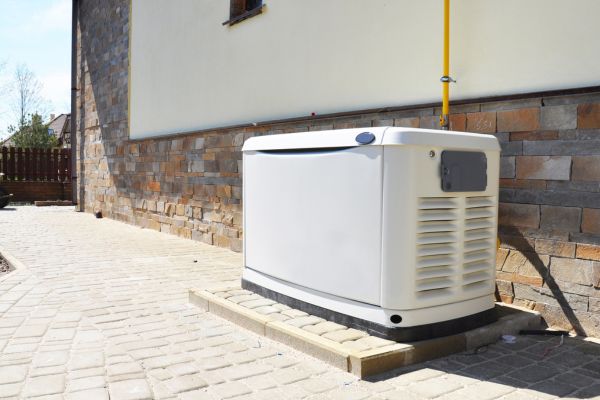
In the age of constant digital engagement and reliance on electric appliances, an unexpected power outage can prove to be more than a minor inconvenience. It can disrupt your work, your schedule, and even your comfort. But what if you had the power to prevent these disruptions? What if you could ensure an uninterrupted power supply at your home, regardless of external circumstances?
This is where backup generators come into play. These powerful machines are your power stations, providing continuous electricity when your main electric power company supply goes down. Whether it’s due to a severe storm, equipment failure, or a routine power cut, a backup generator ensures that your life goes on as usual.
Understanding the Importance of Backup Generators
A backup generator can provide immense benefits in the face of power outages, including:
- Uninterrupted Power Supply: A generator ensures the continuous operation of essential appliances, such as refrigerators, heating and cooling systems, and medical devices, during power outages.
- Enhanced Safety: By maintaining the power during an emergency, a backup generator, for example, can help prevent accidents caused by poor lighting conditions, and maintain critical medical equipment up and running
- Peace of Mind: Knowing that your home is equipped with a reliable backup power source can offer priceless reassurance and security in times of crisis.
Selecting the Right Generator for Your Needs
When deciding on the best backup generator for your home, consider these critical factors:
- Power Requirements: Identify the essential appliances and devices you will need to power during an outage and calculate their combined wattage to determine the generator’s minimum required capacity. A certified electrician can help you measure and decide which is the correct generator size for your needs.
- Fuel Type: Backup generators can run on gasoline, diesel, propane, or natural gas. Each fuel type has its advantages and drawbacks, such as cost, availability, and storage requirements. Research and analyze the best fuel option for your specific needs.
- Portable vs. Standby Generators: Portable generators are more affordable and can be easily moved and stored, while standby generators are permanently installed and can automatically start when the power goes out by using a transfer switch. Determine which option best suits your needs and budget.
- Noise Levels: Some generators can be quite noisy, which may be an important consideration based on your neighborhood and local noise regulations. Opt for a generator with a lower decibel rating if noise is a concern.
Tips for Installing Your Backup Generator
Once you have selected the ideal generator for your home, follow these expert tips for proper installation:
- Choose a Suitable Location: Install your generator outdoors, away from windows and doors, to prevent carbon monoxide buildup in your home. The generator should be placed on a flat, stable surface that can support its weight and will not flood. Most of the time, especially with standby generators a concrete pad needs to be made. Also, be aware to not install the generator close to the neighbors as the carbon monoxide and noise can be a health hazard to them.
- Provide Adequate Ventilation: Ensure that your generator has sufficient ventilation to dissipate heat and exhaust gases.
- Install a Transfer Switch: A transfer switch safely connects your generator to your home’s electrical panel, preventing back-feeding and protecting your electrical system and appliances. It is a switch to select if the energy will be fed from the generator or the power company. There is the option of an ATS (Automatic Transfer Switch) that switches automatically between the generator or power company.
- Hire a Licensed Electrician: Engage a licensed electrician to handle the installation and wiring of your generator and transfer switch, ensuring a safe and code-compliant installation.
Essential Maintenance for Your Backup Generator
Maintain your backup generator with these critical practices to ensure smooth, efficient operation when you need it most:
- Regular Inspections: Inspect your generator periodically, checking for any signs of wear, damage, or leaks. Address any issues promptly to avoid more significant problems down the road.
- Change the Oil and Filters: Follow the manufacturer’s recommendations for oil and filter changes, typically after the first 20-30 hours of use and then every 50-100 hours thereafter.
- Keep the Fuel Fresh: Stale fuel can lead to poor performance or even generator failure. Maintain a fresh fuel supply and add a fuel stabilizer if fuel storage is necessary.
- Test Your Generator: Periodically test your generator under load to ensure proper operation and to identify any potential issues that may need attention.
Essential Maintenance for Your Backup Generator
Understanding the Basics of Installing Backup Generators at Home
Investing in a backup generator offers significant benefits, including uninterrupted power, enhanced safety, and peace of mind during emergencies. By understanding the importance of backup generators, selecting the right one for your needs, and following expert tips on installation and maintenance, you are taking important steps toward securing a reliable power source for your home when it is most needed.
Our team of expert electricians at AC DC Statewide Electric, Inc is here to help guide you through every stage of the process, making the decision and installation as seamless and stress-free as possible.
